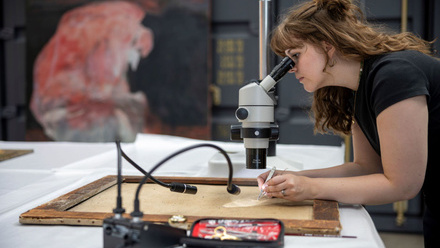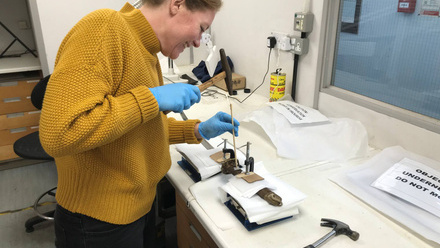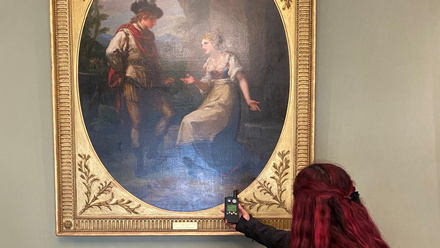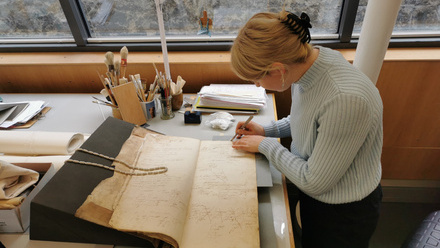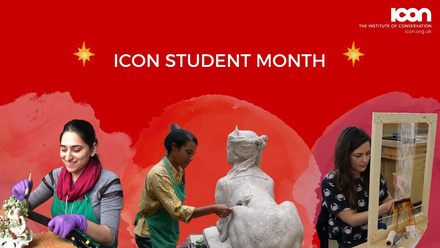Salvage in Lockdown
I am 7 months into my placement, however due to social distancing measures I am currently working from home, providing the interesting challenge of adapting to remote monitoring and reporting of environmental conditions, altering IPM approaches and arguably most importantly, disaster response.
The recent lockdown conditions which have arisen due to the COVID-19 pandemic have had worldwide repercussions, and the heritage sector has not been exempt from this. Huge numbers of Museum, Library, Archive and Gallery staff who would be responsible for security, building maintenance, collections care and many other facets, have been unable to conduct onsite work, whether that be due to government advice, or themselves being directly affected by COVID-19 through self-isolation.

This has led to a drastic change in the way that organisations are able to respond to certain issues. One area which has raised some interesting points, is dealing with salvage planning. A considerable percentage of the salvage volunteers at the National Library of Scotland are now unable to respond to incidents, as they are self-isolating for a variety of reasons, therefore, a callout for new volunteers has been distributed, and has since produced brilliant results, with a full complement of volunteers now becoming available. The issue we have now, is how to train these new volunteers, as almost all have not received any prior training on how to deal with salvage incidents.
Remote Training
The focus now is to find an effective way of training new volunteers remotely, which inevitably has a number of inherent issues, including the teaching of physical activities such as water removal using wet vacs, packing wet collections, covering stack shelving and many other activities. Currently, the aim has been to distribute existing video material sourced from other organisations around the world, for example Syracuse University Library, University of Minnesota Library, AIC and FAIC amongst others. Something that has become apparent throughout this search has been that a large majority of the material found, has not been of UK origin, meaning that working strategies can differ significantly to that of UK disasters.

The plan in now to distribute specific material which can then be referenced in a guide which is to be supplied to salvage volunteers. This material will be sent out periodically, and will be orientated around a variety of tasks.
I am also planning in the future, to produce a series of instructional videos which relate to the salvage of collections, which will consist of a number of videos, each one focussing on a different aspect of salvage operations. These will include more practical elements such as packing wet collections etc., as well as organisational instructions including, how to initially respond to an incident, where to go and who to report to. These videos would be distributed to disaster volunteers at NLS, but it is hoped that these would then be made available to any organisation who would find them useful.
External Response
Anxieties have also been raised by a number of organisations regarding the level of response some salvage recovery companies may be able to provide during lockdown, however governments and insurance companies have advocated that damage management services such as Harwell and AOC for example, are essential services in the event of an incident occurring. However, during an incident, infection protocols must be adhered to, which can be acquired by getting in touch with any company offering this type of service.
In these uncertain times, I would urge collections care staff to interact with other organisations when assessing their current disaster plans. Groups such as the Edinburgh Collections Response Network (ECRN) have been invaluable for the NLS as I’m sure other collections care staff involved will agree.

